The Middle Child: More Than Just Forgotten
Some believe it’s a myth, yet others have gone through the implications of Middle-Child Syndrome firsthand. Htet Htet Nay Aung explores how this syndrome has affected the childhood and development of youths.
BY
Htet Htet Nay Aung
People and npTribune Section Editor
Hype Issue #54
Published on
January 27, 2022
If you’ve ever found yourself relating to Edmund from The Chronicles of Narnia or Alex Dunphy from Modern Family, congratulations! You might have experienced something called Middle-Child Syndrome.

Alfred Alder, a 20th century psychologist, had a theory that the birth order of children correlates closely with their development and personality. He believed that the middle child often gets overshadowed by or are more neglected compared to their older and younger siblings.
According to this theory, he stated that although children may be brought up in the same environment with the same teachings, their birth order could heavily influence their individual experience and personality.
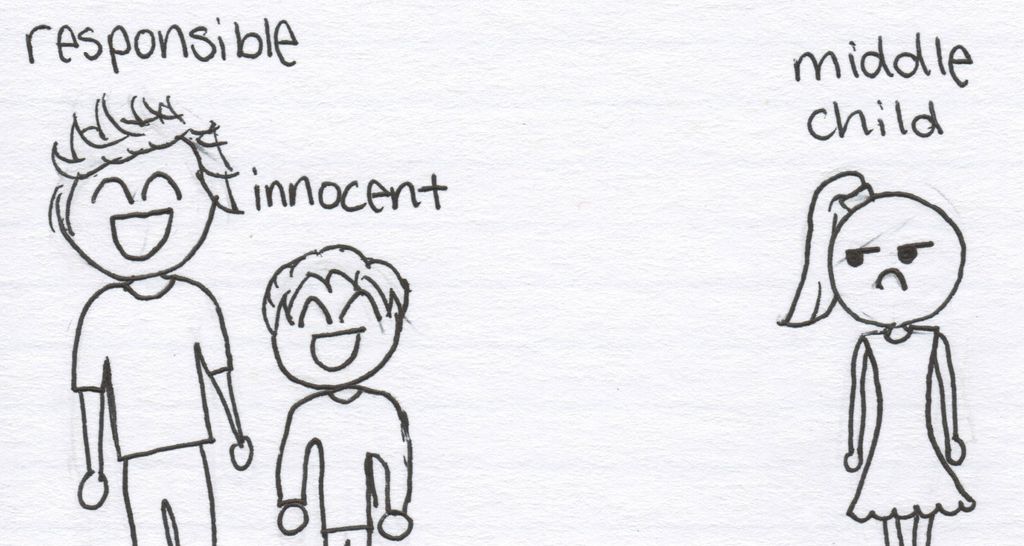
While the oldest is deemed the “golden child” and the youngest gets pampered the most, the middle child is often neglected in the process, with nowhere to fit in. Photo taken from Wrytin.
Since Middle-Child Syndrome is not an official medical diagnosis but instead a study of behavioural patterns over the years, it is not hard for people to express scepticism towards it.
“Middle-Child Syndrome is not a mental condition under the Diagnostic and Statistical Manual of Mental Disorders (DSM-5), and is currently listed as a hypothetical condition by the American Psychological Association (APA),” says Mr Maximillian Chen, a clinical psychologist in Singapore.
However, individual experiences can differ. For middle children who have had a first class seat to this experience growing up, explanatory articles and countless studies on the internet may never do them justice.
“It’s not that I didn’t feel loved but I always saw that my siblings got [loved] more,” says James Koh, 22.
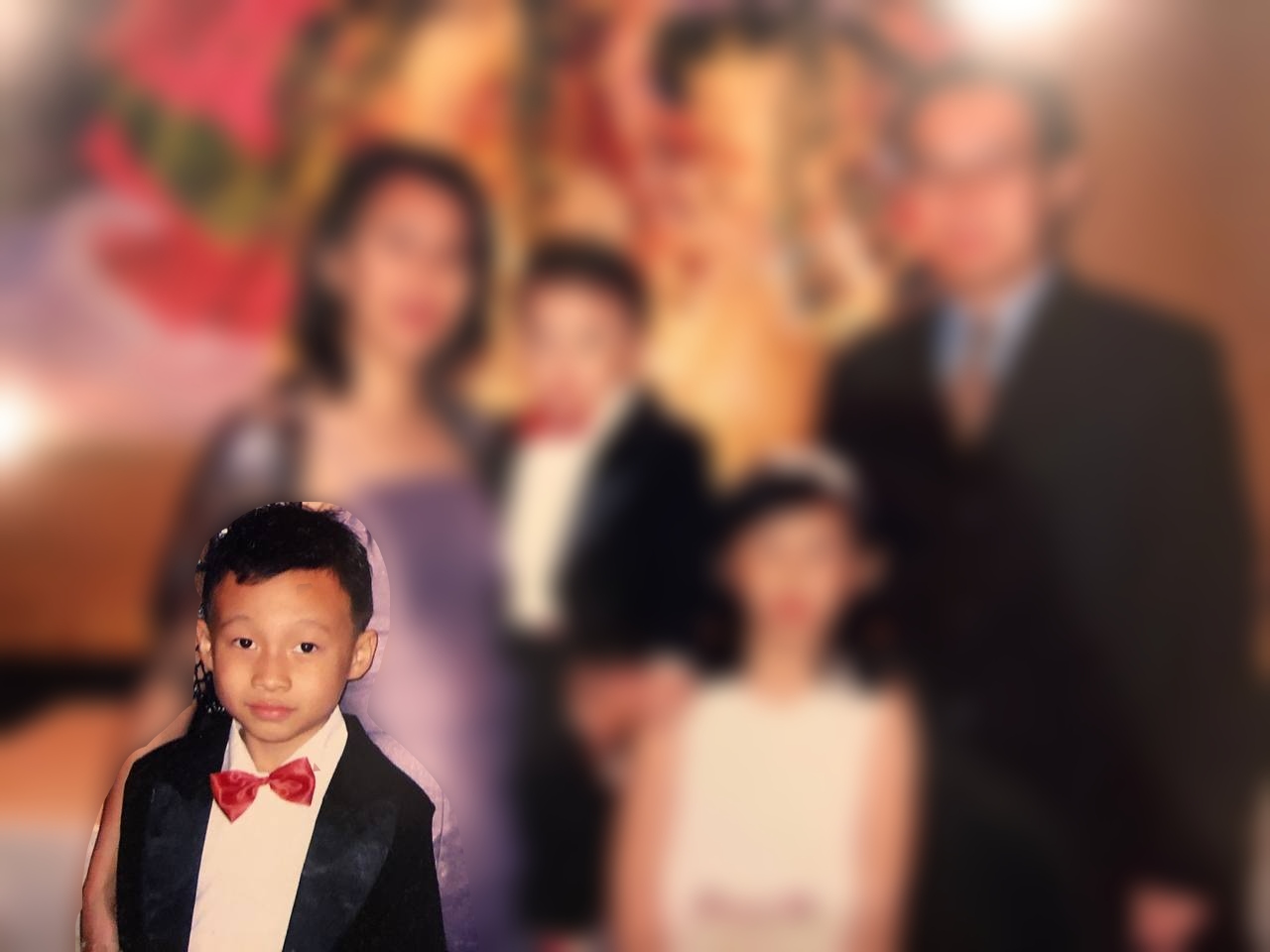
While his sister was crowned as the family’s smart, “perfect” first child and his brother, the most doted upon, James always felt like he had no place in the family growing up.
“One thing that really angered me when I was younger was that I saw there was only a picture of my sister and brother in my mom’s room,” he recalls.
Middle children often struggle with the feeling of being neglected as they feel the amount of attention and love they receive from their parents always falls short as compared to their siblings.
According to prior research and observations, Mr Chen points out that “youths with Middle-Child Syndrome may tend towards being rebellious to get more attention”, however some of them may also tend to be “the peacemaker in relationships and display more people-pleasing behaviours”.
James was undoubtedly the former as the feeling of inferiority, self doubt and rebellion started at a young age for James.
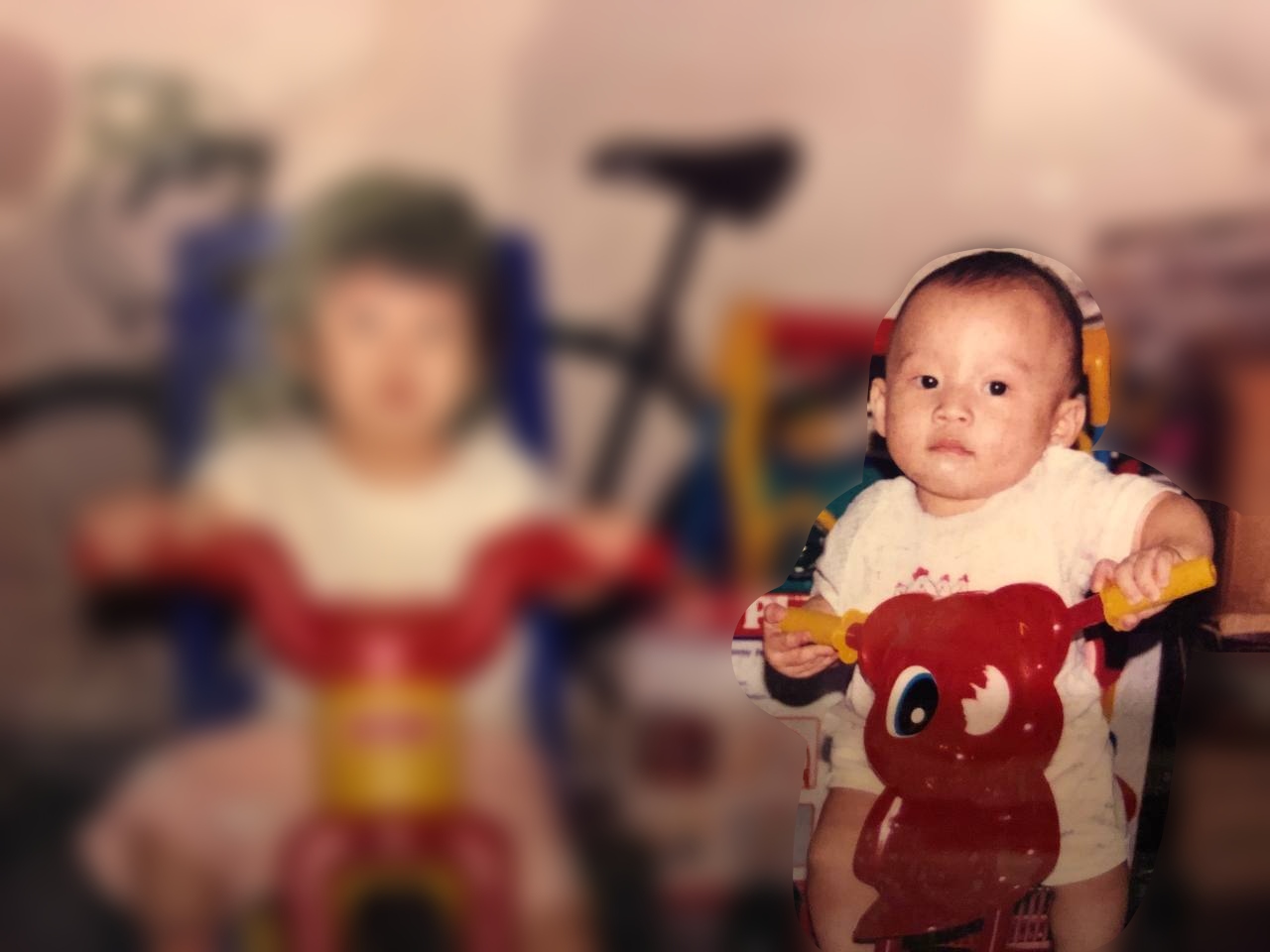
His older sister and younger brother both got into the Express stream in secondary school while he made it to the Normal Academic (NA) stream. It often led him to wonder if his pace of learning was the result of not being given the same amount of attention and opportunities to take part in their family outings.
While he was stuck in endless tuition classes, his siblings had multiple opportunities to bond with their parents during family activities which he was not a part of.
Although the possibility that all of this could have been coincidental as his parents claimed that “they love everyone equally”, young James could not escape the heavy weight of feeling like he “had to prove to [his] parents that [he] was good enough”.
“The eldest child is often the first to reach milestones and hence parents would pay attention to the eldest at these times. When the youngest child is born, parents would naturally show more care and attention to them as they are likely to be less independent… As a result, the middle child may feel like he or she gets less attention from their parents,” says Mr Chen.
Due to this pattern of exclusion and lack of attention, many middle children start to seek comfort in other social circles, particularly their friends.
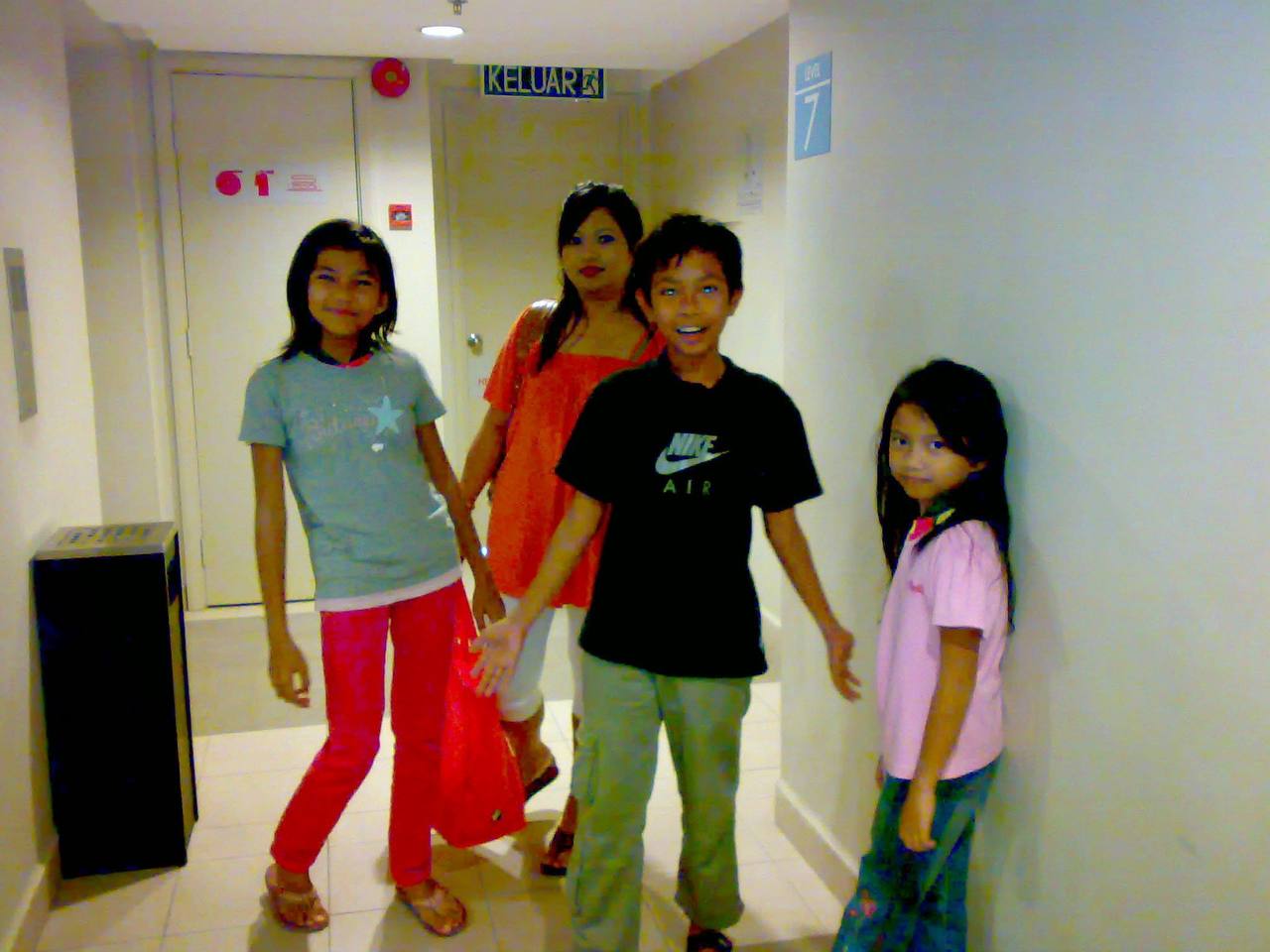
Norish Khairina (extreme left) started noticing the common characteristics of children who have middle child syndrome in herself and those around her. Photo courtesy of Norish.
Similarly, Norish Khairina, 23, found herself in a similar situation as the black sheep of the family.
“My brother always got away with most things, maybe it is because he is the first child, the obedient child; and my sister has never been beaten by my parents before… I felt like no one in the family got me,” says Norish.

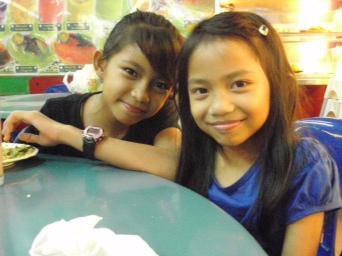
As compared to her siblings who were more comfortable around her family, Norish always kept her problems and feelings to herself as she was afraid that “it would backfire when they don’t get it”, furthering the belief that she was the root cause of all of the issues in the family.
Paired with her non-confrontational attitude, Norish found it difficult to speak up for herself and find a voice in the family which often resulted in her hiding in her room, away from everyone else.
“These behaviours can be displayed by others who are not middle children as well. The evidence behind the existence of middle child syndrome is still ambiguous,” Mr Chen points out, saying that he has dealt with youths who exhibit similar behaviours to Norish and James.
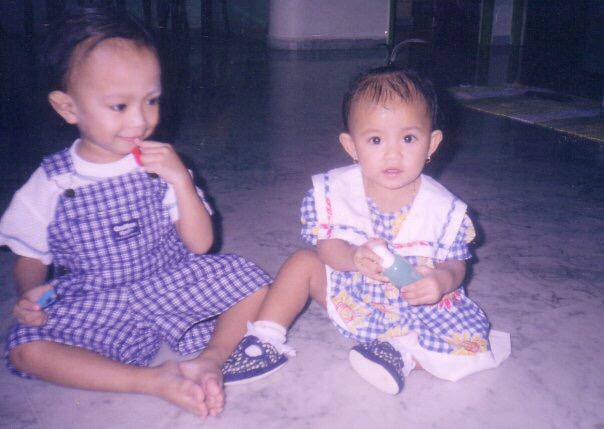
“I used to get upset when I was younger because I felt like my family didn’t love me… But as I grew up, I kinda got used to it and no longer get upset over it,” says Norish.
As an early childhood educator, Norish has found a deeper understanding of this phenomenon, as well as herself. Norish easily falls into the common category of being the “peacemaker” amongst middle children and feels fine where she is, even if her family thinks otherwise.
Today, James has made peace with the rebellious and angry inner child in him and has accepted the abundant independence and resilience that he has developed over the years.
Although his experience may have been rougher than those of his siblings’, he believes that this journey has heavily influenced the person he has become.
As young adults, both James and Norish have come to terms with the emotions and troubles they dealt with during their childhood and have simply gotten “used to it”.
But does this mean that the implications stop there? Unquestionably not. Whether or not their birth order had any influence on their personalities in adulthood, the experience that they’ve had over the years has shaped who they are today, for better or for worse.
“While being a middle child can have a significant impact on one’s development or personality, this impact can either be positive or negative,” says Mr Chen.
While being a middle child can have a significant impact on one’s development or personality, this impact can either be positive or negative.

Parents may sometimes be too focused on the negative traits in middle children that they might forget to evaluate the causes behind such behaviour. Photo taken from The Guardian.
There are always two sides to the same coin. Are children to blame for acting out because they are unable to handle the complexity of certain situations? Or should parents be more aware of how their actions affect the upbringing and development of their child?
“I think parents tend to focus a lot on their child’s unwanted behaviour and try to fix it through scolding or punishments. Parents are not often aware of the factors that can contribute to their children’s negative behaviours, such as parenting styles and birth order,” say Mr Chen.
Due to this, many parents fail to take a step back and look at the bigger picture: the cause and effect of their actions and words. While many are aware of Middle-Child Syndrome and its complications, they simply do not believe in it.
“I wish my parents would have just acknowledged what I was going through; it would have made me feel a lot better about myself,” says James.
Although Middle-Child Syndrome and birth order aren’t the main factors contributing to how a child develops, the experiences that they go through plays a huge role, and so do their parents.
In order to work on a relationship between a middle child and their parent, effort is needed from both parties to understand each other better and to patch up past wounds. Acknowledging the child’s emotions and experiences could form a bridge that helps many middle children to express their feelings fearlessly, and eventually might put them at peace with their families and inner child.
21 Comments
Trackbacks/Pingbacks
- Homepage - ... [Trackback] [...] There you will find 82664 more Infos: hypesingapore.com/index.php/2022/01/27/the-middle-child-more-than-just-forgotten/ [...]
- เดิมพันอีสปอร์ต กับ PINNACLE เล่นง่าย - ... [Trackback] [...] Read More here on that Topic: hypesingapore.com/index.php/2022/01/27/the-middle-child-more-than-just-forgotten/ [...]
- hit789 - ... [Trackback] [...] Find More on to that Topic: hypesingapore.com/index.php/2022/01/27/the-middle-child-more-than-just-forgotten/ [...]
- pg333 - ... [Trackback] [...] There you will find 76568 more Info to that Topic: hypesingapore.com/index.php/2022/01/27/the-middle-child-more-than-just-forgotten/ [...]
- hua hin house for sale - ... [Trackback] [...] Find More to that Topic: hypesingapore.com/index.php/2022/01/27/the-middle-child-more-than-just-forgotten/ [...]
- เว็บรวมเกมสล็อต - ... [Trackback] [...] Information on that Topic: hypesingapore.com/index.php/2022/01/27/the-middle-child-more-than-just-forgotten/ [...]
- ยูฟ่าโปรเบท กับ LSM99 ต่างกันอย่างไร - ... [Trackback] [...] There you can find 71751 more Information on that Topic: hypesingapore.com/index.php/2022/01/27/the-middle-child-more-than-just-forgotten/ [...]
- h07vvh6-f - ... [Trackback] [...] Here you will find 26182 additional Info on that Topic: hypesingapore.com/index.php/2022/01/27/the-middle-child-more-than-just-forgotten/ [...]
- ทางเข้า lucabet - ... [Trackback] [...] Find More here on that Topic: hypesingapore.com/index.php/2022/01/27/the-middle-child-more-than-just-forgotten/ [...]
- link - ... [Trackback] [...] Info on that Topic: hypesingapore.com/index.php/2022/01/27/the-middle-child-more-than-just-forgotten/ [...]
- CC link cable - ... [Trackback] [...] Read More to that Topic: hypesingapore.com/index.php/2022/01/27/the-middle-child-more-than-just-forgotten/ [...]
- สล็อตเว็บตรง ค่ายเกมPG - ... [Trackback] [...] Info to that Topic: hypesingapore.com/index.php/2022/01/27/the-middle-child-more-than-just-forgotten/ [...]
- webcam chat - ... [Trackback] [...] Find More on on that Topic: hypesingapore.com/index.php/2022/01/27/the-middle-child-more-than-just-forgotten/ [...]
- Graphics - ... [Trackback] [...] There you will find 17610 additional Information to that Topic: hypesingapore.com/index.php/2022/01/27/the-middle-child-more-than-just-forgotten/ [...]
- ไฮเบย์ - ... [Trackback] [...] Find More on that Topic: hypesingapore.com/index.php/2022/01/27/the-middle-child-more-than-just-forgotten/ [...]
- รีวิวเกมสล็อต - ... [Trackback] [...] Read More to that Topic: hypesingapore.com/index.php/2022/01/27/the-middle-child-more-than-just-forgotten/ [...]
- Aviation Tire - ... [Trackback] [...] Find More to that Topic: hypesingapore.com/index.php/2022/01/27/the-middle-child-more-than-just-forgotten/ [...]
- Lowara distributor water pump - ... [Trackback] [...] Information on that Topic: hypesingapore.com/index.php/2022/01/27/the-middle-child-more-than-just-forgotten/ [...]
- expanse - ... [Trackback] [...] Info on that Topic: hypesingapore.com/index.php/2022/01/27/the-middle-child-more-than-just-forgotten/ [...]
- สล็อต888 เครดิตฟรี - ... [Trackback] [...] Here you will find 75029 additional Information on that Topic: hypesingapore.com/index.php/2022/01/27/the-middle-child-more-than-just-forgotten/ [...]
- หมอฟัน แปดริ้ว - ... [Trackback] [...] Information to that Topic: hypesingapore.com/index.php/2022/01/27/the-middle-child-more-than-just-forgotten/ [...]
- บอลสเต็ป 4 เสียครึ่ง1คู่ คิดเงินยังไง - ... [Trackback] [...] Information to that Topic: hypesingapore.com/index.php/2022/01/27/the-middle-child-more-than-just-forgotten/ [...]
- SMM Thai - ... [Trackback] [...] Find More here on that Topic: hypesingapore.com/index.php/2022/01/27/the-middle-child-more-than-just-forgotten/ [...]
- ไฟหน้ารถยนต์โปรเจคเตอร์ - ... [Trackback] [...] Information on that Topic: hypesingapore.com/index.php/2022/01/27/the-middle-child-more-than-just-forgotten/ [...]
- บาคาร่า ufa11k - ... [Trackback] [...] Read More Info here on that Topic: hypesingapore.com/index.php/2022/01/27/the-middle-child-more-than-just-forgotten/ [...]
- here - ... [Trackback] [...] Read More here on that Topic: hypesingapore.com/index.php/2022/01/27/the-middle-child-more-than-just-forgotten/ [...]
- รับติดตั้งระบบระบายอากาศ - ... [Trackback] [...] Read More on on that Topic: hypesingapore.com/index.php/2022/01/27/the-middle-child-more-than-just-forgotten/ [...]
- 5เฮง สล็อต เว็บสล็อตออนไลน์น้องใหม่ - ... [Trackback] [...] Find More on that Topic: hypesingapore.com/index.php/2022/01/27/the-middle-child-more-than-just-forgotten/ [...]
- read article - ... [Trackback] [...] Information to that Topic: hypesingapore.com/index.php/2022/01/27/the-middle-child-more-than-just-forgotten/ [...]
- Kraken Hunter - ... [Trackback] [...] Here you can find 7359 more Info on that Topic: hypesingapore.com/index.php/2022/01/27/the-middle-child-more-than-just-forgotten/ [...]
- Ufavision เว็บแทงบอลครบวงจร - ... [Trackback] [...] Find More Information here on that Topic: hypesingapore.com/index.php/2022/01/27/the-middle-child-more-than-just-forgotten/ [...]
Submit a Comment


I am an investor of gate io, I have consulted a lot of information, I hope to upgrade my investment strategy with a new model. Your article creation ideas have given me a lot of inspiration, but I still have some doubts. I wonder if you can help me? Thanks.
Zen
peaceful piano music
winter jazz
feeling relaxing sweet coffee jazz music
yoga music
bossa nova
Thank you for your sharing. I am worried that I lack creative ideas. It is your article that makes me full of hope. Thank you. But, I have a question, can you help me?
Your article helped me a lot, is there any more related content? Thanks!
Can you be more specific about the content of your article? After reading it, I still have some doubts. Hope you can help me.
I don’t think the title of your article matches the content lol. Just kidding, mainly because I had some doubts after reading the article.
I don’t think the title of your article matches the content lol. Just kidding, mainly because I had some doubts after reading the article.
Can you be more specific about the content of your article? After reading it, I still have some doubts. Hope you can help me.
Your article helped me a lot, is there any more related content? Thanks!
Your article helped me a lot, is there any more related content? Thanks!
Your article helped me a lot, is there any more related content? Thanks!
Your point of view caught my eye and was very interesting. Thanks. I have a question for you. https://www.binance.com/lv/register?ref=B4EPR6J0
Can you be more specific about the content of your article? After reading it, I still have some doubts. Hope you can help me.
Your point of view caught my eye and was very interesting. Thanks. I have a question for you.
No pop-ups. Clean viewing experience.
Appreciate the watchlist. Keeps track of everything.